Bubblin’ Up: Kareful
One of wave's most in-demand artists muses on his career, the wave scene's successes, and what's on the horizon.
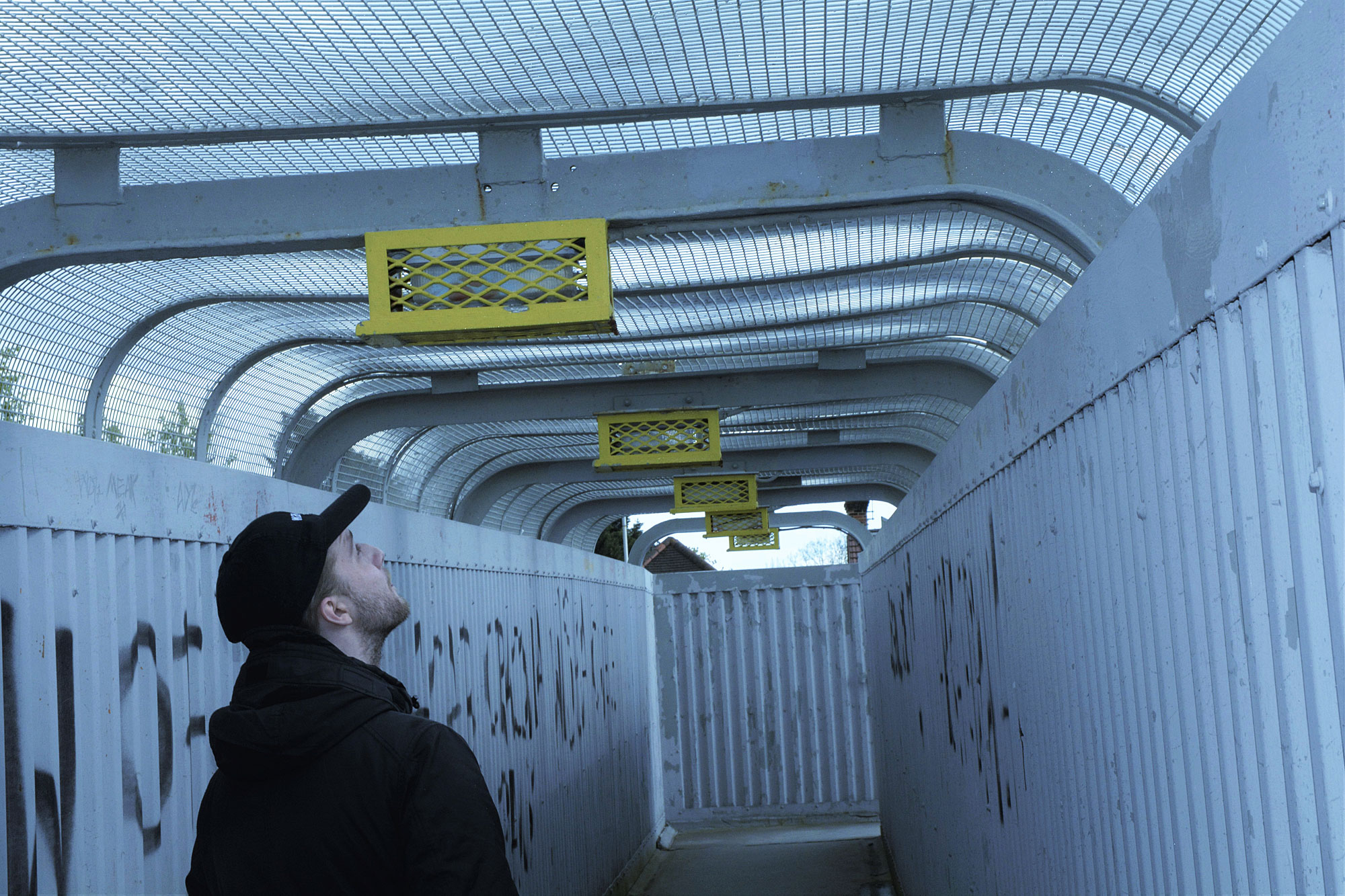
Bubblin’ Up: Kareful
One of wave's most in-demand artists muses on his career, the wave scene's successes, and what's on the horizon.

“Actually nearly all my friends are into techno,” begins an earnest Jude Leigh-Kaufman, better known to his legion of online followers as Kareful. “Still, there’s time to convert everyone to wave yet,” he laughs across a pub table in Shoreditch. And with the numbers he and his fellow wave producers have been posting online over the course of the last few years, he has every reason to be confident of bringing all of us into the fold.
Billed as a new form of music that exists at “the intersection between trap, dubstep, and grime” but with a far more chilled aesthetic, wave as a scene has been developing almost exclusively online, with internet collectives springing up within forums and music sharing platforms across to globe to work outside of the perimeters which within previous musical genres have sprouted up. Less confined by the expectations of the dancefloor, Kareful and his experimental cohorts have started to make the leap from URL to IRL whilst retaining the experimental edge that caused the scene to capture the attention of so many producers in so many locations around the world.
With a new six-track EP about to hit the shelves and hardrives via influential trap imprint Trapdoor, we sat down with Kareful to muse on the wave scene’s many successes, dealing with the pressures of being a scene figurehead, and what the Londoner has planned for the future.
Tell us about your name—were you a particularly cautious child or is it ironic?
I actually considered changing it, but by the time I thought about it seriously it was already too established for me to do so. I just wanted a name that existed but when searched for was easily identifiable as me—it was tactical, I guess, and with every part of my music having online roots, that seems appropriate.
The other thing I find interesting is once you get into someone’s music, any previous associations you may have had with that word loses all power because when you think of their name in the context of their music, you purely think of their output. When people call me Kareful now, I don’t actually think of the word careful anymore—it’s like the two words have no relation, which is strange when you think about it. I’m also far from careful myself, which is why my Instagram is @neverkareful.
We’re always interested to hear about emerging producers’—particularly those from similarly emerging genres—musical backgrounds. What was your first exposure to music? Do any of those early influences still shine through in your work?
My family are quite musical. My uncle, who I was quite close with growing up, was always songwriting or producing something, so I was exposed to the production process at an early age. I’ve been playing piano since I was around four—I’ve never undertaken lessons or anything, but I taught myself how to play. In school I learned how to play guitar and was in a number of metal bands and the like, but I got bored of bands quite quickly as I hated the fact you had to rely on other people—I was always someone who took it really seriously, so I’d be frustrated being in bands with people who weren’t into it as much as I was. It was out of that frustration that I decided to produce music myself. It made a lot of sense to me as I could do what I wanted with the only limit on my output being my own ambition, my own hard work.
I also think that my ability to play instruments and in the way I learned how to play them has had a huge impact on the music I make, because what makes it interesting, in my opinion, is that it’s quite melodically driven for a bass-fuelled style—my work heavily relies on catchy melodies to give it its impetus.
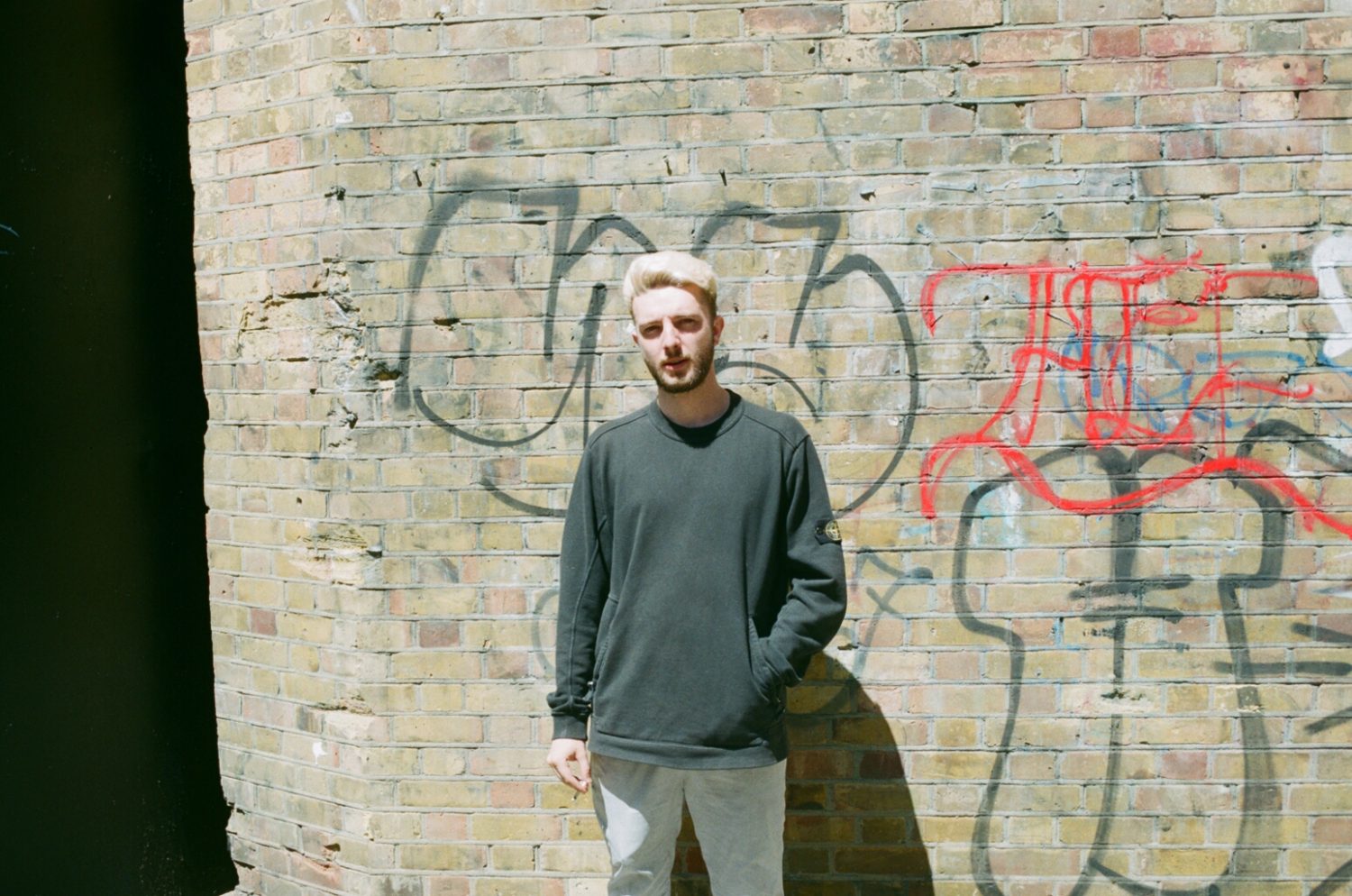
It’s interesting to hear that you’re self-taught. So many of the interesting new genres that have developed in the past decade or so—grime, gomme etc.—have stemmed from non-classically trained musicians creating their own sound outside of the influence of existing styles.
Everyone I know is self-taught and that is one of the key reasons behind wave’s originality. The sound is very DIY. It’s a very organic scene. With some of the other emerging scenes, you sort of get the feeling that there are a couple of people doing it organically, and then others have jumped on it because they think it’s the next big thing. With wave, there were hundreds of people making this kind of music because they loved it and wanted to listen to it, rather than thinking it was something they could make a career out of or build a name for themselves. We all came from different places but created a community online with many different strands to it, which is what I think keeps it sounding unpredictable and fresh.
Can you differentiate between the wave sounds emanating from different countries?
For sure. It’s an internet sound and whilst there’s an overall theme, each country in which a wave scene is developing has its own unique take on the genre due to that country’s musical history influencing that country’s producers. If you listen to the guys from London or the UK producing wave, you can hear more dubstep or grime influences than producers from say Poland or the US. I’m filtering tracks through a prism of UK-centric influences, whereas the American guys are doing the same but with hip-hop or trap to give each scene a local flavor. Interestingly, it then all mixes as we take little bits from each other’s work and introduce our various sounds into the big Wave melting pot.
So it’s been a bit like an international talent exchange?
Yes! One of the things I love most about it is how, for example, myself and Skit will be introducing a kid in America to grime or dubstep sounds via our tracks. They will then have a go at producing something like that but their version is cross pollinated with their influences, twisting everything together to make something totally new. To me that’s sick.
It certainly is. Outside of the void of the internet, has wave developed any geographical hotspots? Where would you say is the best place to hear it in 2017? Or do you think geo-tied creative hubs are a relic of a time gone past?
Well, the wave scene is already global, which people not following it as of yet probably don’t realize. People struggle to understand its true home is the internet, but that’s where it will always be. It didn’t spring up in one place, it sprung up in thousands of bedrooms around the world where people were listening to this at home. In many ways, it’s gone pretty much the reverse of every scene before it, scenes that forged a community through clubs and parties before ever making their way into people’s homes as something to listen to—we did the opposite and have gone from your headphones to the club. We just had our Liquid Ritual label launch at Kamio in Shoreditch which was a total smash, with heads like Deadcrow flying in to perform and rappers like Spoze and Bexey performing, along with a very special surprise appearance from Lil Peep, who recently moved to London. This is where wave is really going to move forward, with everyone putting on events and the guys who rap performing alongside us DJs.
Geographically, we’re not trying to expand outside of cities, we’re trying to bring it into them, which is a backward way of doing it. We’re installing it in clubs rather than filtering it through them. To that end, London is probably the best place to hear it just because there are a lot of people here in a concentrated area with access to clubs and spaces doing it. At the same time, there are other hotspots springing up all the time. Poland has stuff continually going on and not just in one city but all over the country, they’re even hosting the first ever wave festival next week. Whereas the UK scene is still fairly London-centric, in comparison. The US is obviously blowing up with parties popping off in NYC, LA, Seattle, and Atlanta, amongst others. The growth within cities across the States has been rapid.
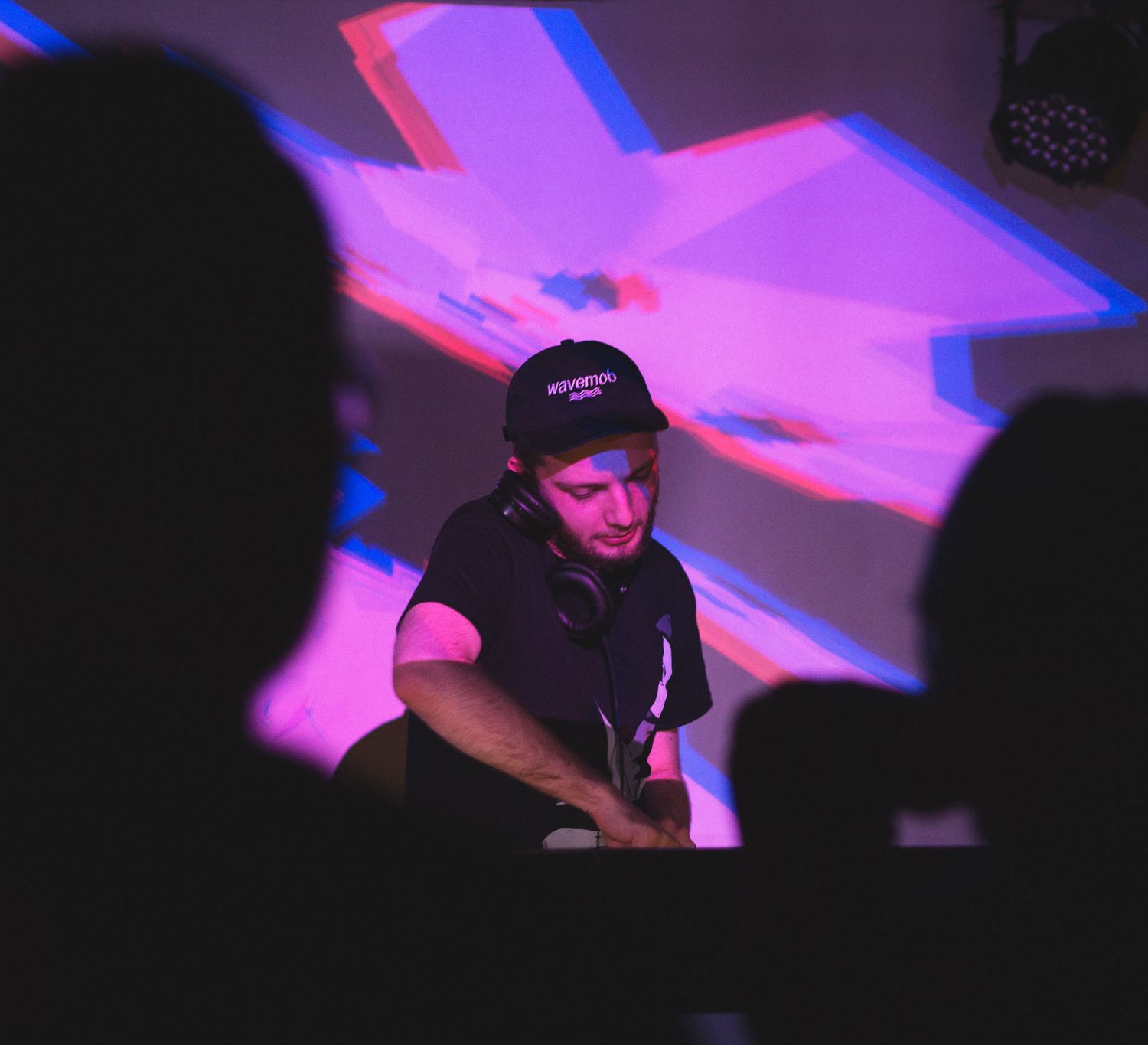
We often hear that the album format is dying with sales continuing to fall and playlists dominating streaming platforms, and yet you as the poster boy of what is one of the internet’s fastest growing scenes, already have a long player under your belt. How important was it for you to lay down an extended marker of your work for you and wave as a scene?
It was never something I really intended to do early. I made all of the tracks on that album when I was still just making music for fun. I then got hit up by Trapdoor, who were a huge, huge influence for me as I was still developing my sound, so them being interested in releasing my album was a great honor for me.
So it wasn’t a goal of yours when you set out?
My entire music career up to this point has been me trying to achieve mini goals, and that was one of them. I have a list of mini goals and a list of huge goals that I strive to make happen and that was a goal to be recognized by Trapdoor, so when they hit me up, I had a lot of music to send them, which luckily they were really digging. A lot of their projects are quite short, so I think they were up for doing something different, working on something a little longer as they were interested in my sound and could see that the numbers I was getting online at the time were pretty decent. A lot of the tracks that made up that album were singles that I had already put out and they were keen to get them remastered and a bit more polished so they could be ready to be pushed out as “hits,” so to speak.
With you having already developed a following online prior to the release of Deluge, did you expect it to blow up in the way it did?
It was really random; to be honest, they didn’t expect too much from it. Saying that, anything beyond breaking even would be considered a success, but then seemingly out of nowhere it did really well. I think that was simply a case of being in the right place at the right time, as with that sound, it’s been around for a little while but needed to be pushed in front of the right people before it could be taken seriously.
Talk us through your creative process—is there a set routine you go through when creating new music?
I approach building tracks differently every time. I don’t have a formula in place for how I should start anything because, for me, that would be counter-productive. What makes me stand out is my desire to experiment—I think you can always hear that it’s me, there’s a theme running through all my work—I’m always up for trying new things, be that tempo or sample sources. For me, inspiration can come from anywhere. I build stuff for different purposes. When I first started getting booked regularly, I thought that most of my current stuff wasn’t the most club-friendly, so I took that into account and started adding faster, more dancefloor-orientated stuff into my repertoire. I was also trying to bring more UK DJs into the fold, as wave probably sounded a bit too alien to people at first. I thought with a few more UK influences included—grime, dubstep, UKG—we could get more people involved and that worked as you’ve now got people like Om Unit, Compa, and Plastician supporting it.
Now it’s been presented on bigger platforms we can start to push those sounds that made it a little bit too alien to start with again, because after the level of exposure it now has, people get it a lot more and are happy to run with the less familiar elements in a way they perhaps wouldn’t have before.
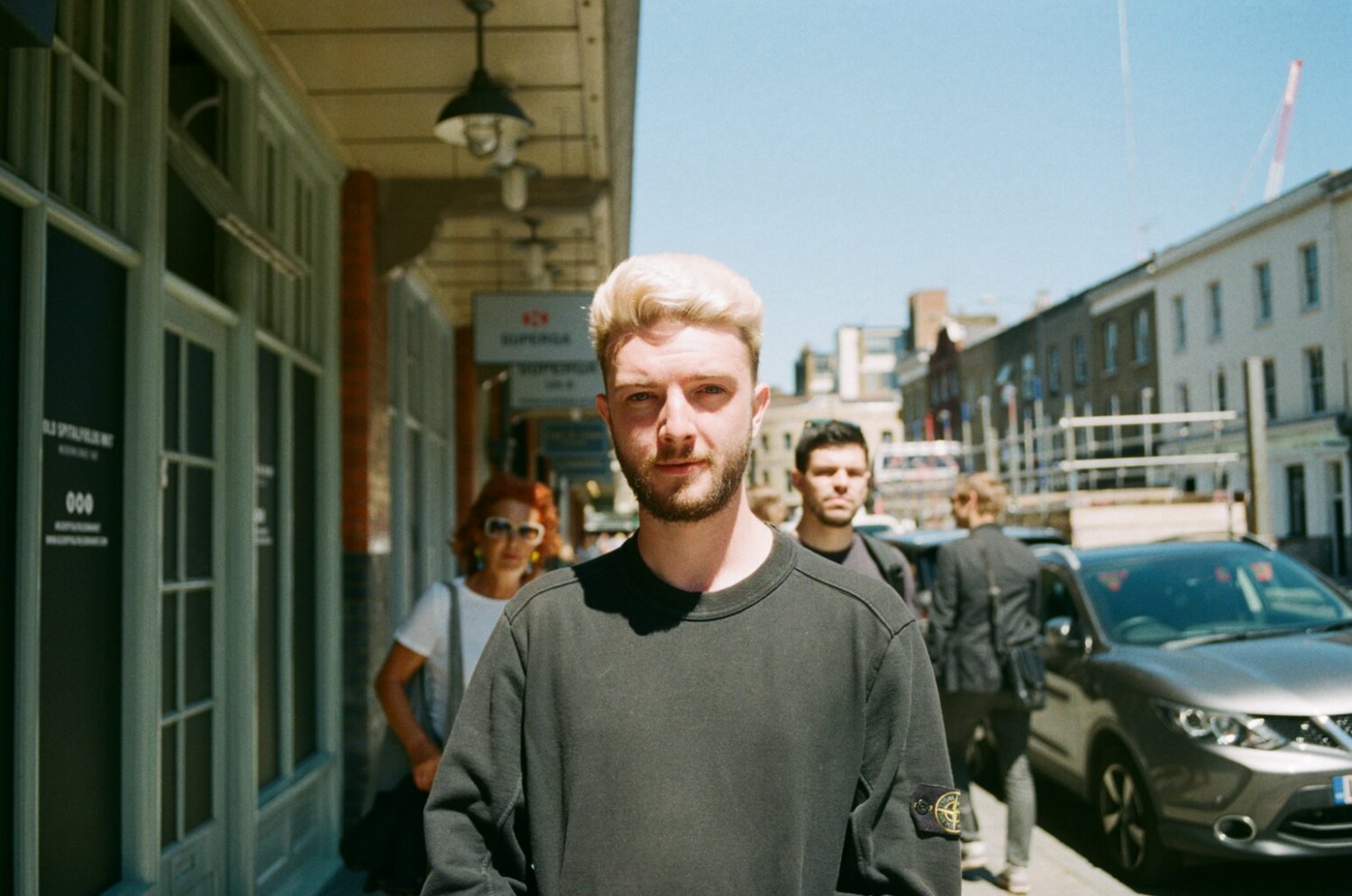
It’s interesting that you were thinking about the marketing of the genre from the beginning. Did you have any pushback on this from scene purists as with other styles that have tried to make themselves more accessible?
What’s cool about this genre is that we don’t have any hard and fast rules—we’re not restricted by tempo and our style is more about a feeling and that’s impossible to pin down. You know it when you hear it, but a track can be anywhere from 100 to 140 bpm because unlike other genres we’re all about evolution—new takes on wave excite rather than anger the scene. As long as people are keeping it real then it’s all good. With festival season approaching, that more esoteric sound might be just what we need to tune into people’s senses this summer.
You’ve recently launched your own imprint Liquid Ritual—what do you hope to achieve as a label boss?
I run Liquid Ritual with LTHL and Stohou. At the moment, we’re more a collection of collectives, which is great. I’m a huge supporter of everyone involved and have worked with pretty much everyone at some point as one of the key figures in this scene. It’s the desire to see the scene grow that saw me launch my own label rather than anything else.
I’ve always wanted to further the careers of others and help continue to build wave as a genre. I’m not a complacent person—I’m never satisfied. I never really relax, I don’t sleep much, and I need to be always doing something which is why I think I’ve always been fairly prolific as a producer, and having just broken up with my fiancée, I’ve been producing more material than ever.
Do you feel any pressure as one of wave’s most recognizable figureheads?
A lot of people have described me as the Skream of wave, which is obviously very flattering. I think I’ve ended up being as known as I am not because I’m the most talented producer or the first—I was definitely not the first—but because I was the most proactive in trying to take things to the next level. To start with, I think a lot of producers involved had this great sound but didn’t know what to do with it, but a few of us recognized it’s potential. We were the ones who said to ourselves, “You know what this is fucking interesting, this could really be something,” and tried to really push it with the support of everyone involved. I’m a strong believer in community and I love being an ambassador or whatever you want to call me for the scene as I love it so much and think it deserves to reach the levels we’re starting to see it reach.
I’m doing 100 things a day and once things begin to calm down, once things are falling into place, I begin thinking about the next project—I think I might have ADHD. I love keeping busy, it’s what keeps me sane and with each success, I’m hungry for more.
Rumor has it that some of the majors are starting to take note. Does that worry or excite you?
They are! We’ve now got a lot of interest coming from major labels. It is and isn’t worrying—I have good lawyers. I’m not satisfied with music in the UK.
My ambitions expand every day. I remember writing a list of what seemed like unrealistic goals and then managing to achieve them in six months. After that I made new ones and then completed them before thinking, how big should I aim next?
I’m about to go on a world tour starting with a number of shows all over Asia, before heading to the US and Canada during which I hope to meet a lot of local artists and help them set up stuff so wave can grow there in the same way it did here. I’m not in this just to get big personally, I want there to be opportunities for everyone to eat. I’ve had opportunities where I could have gone it alone but chose not to as I wanted to really build something.
So where do you think you’ll be taking wave next?
For the future, I think once festivals catch on to wave properly then that is where it’s going to live as that’s always where I’ve seen it as best suited. It was never designed to be club music but has still managed to establish itself in that environment. But on a beach on a sunny day, at Burning Man or the like; I can’t think of a much better environment than that to listen to Wave. It’s appeal always amazes me in that it varies depending on where you’re listening to it—some scenes are high fashion, some are more underground, it really does depend on where you are in the world.
Why do you think festivals have been slow to pick it up?
Festivals always seem quite late to new scenes these days. Perhaps we need a few new events to emerge. The people making the music are always the most clued up on it. The DJs are the next most plugged-in, followed by journalists and promoters, then listeners—then after all that do festivals start to jump on things.
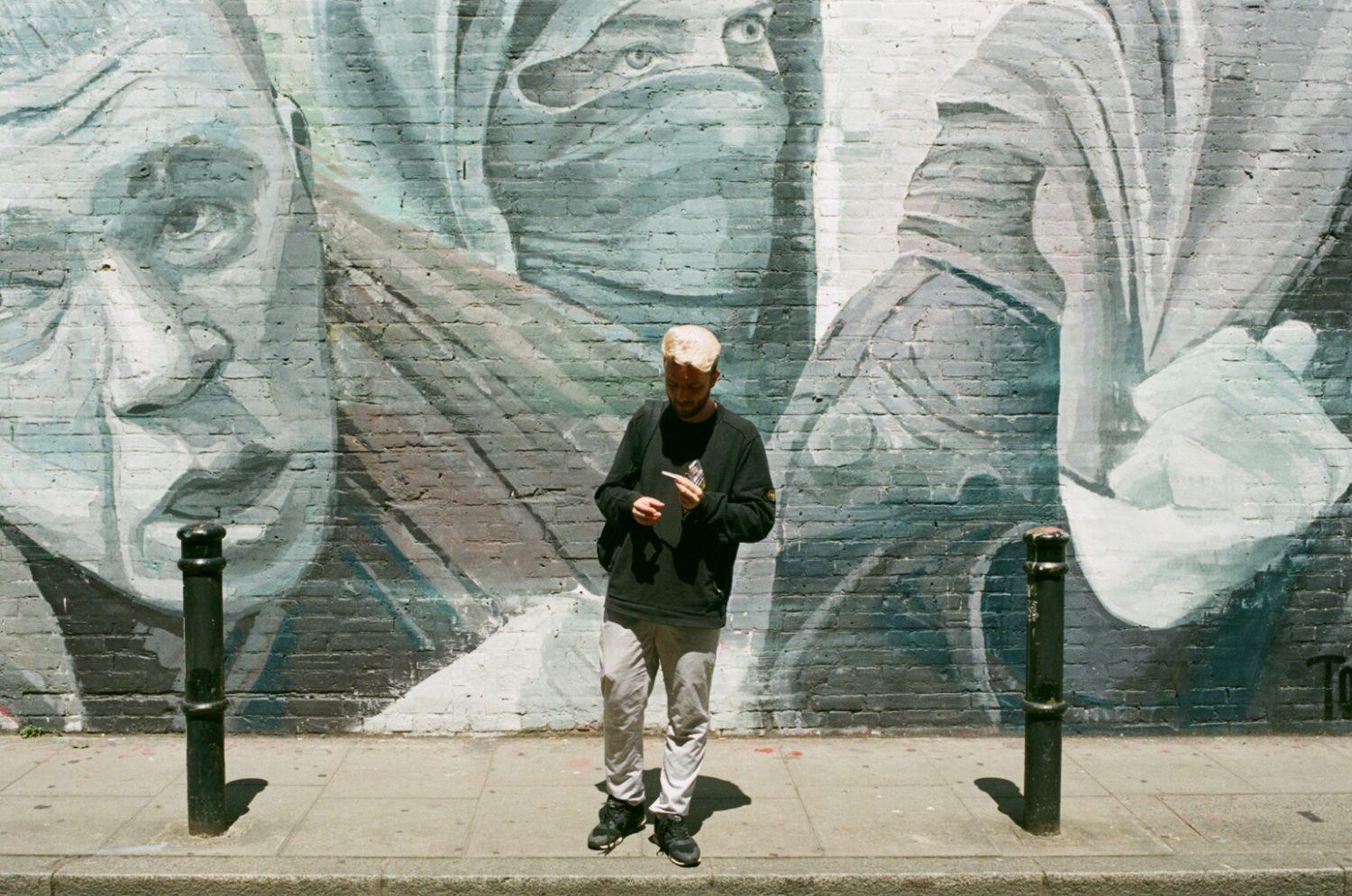
We’ve spoken a lot about the positive reaction you and wave have received but you’ve also had plenty of hate online too. How do you react to such negativity towards your sound from wave outsiders?
We’ve got a lot of hate recently as a scene because we’ve started blowing up. Any success spawns jealousy. We had an article on a big outlet recently that completely missed the mark but that shows that we’re on the right path. That article got much more hate than wave did from it—there were loads of people calling it out for what it was and if people are writing hate bait about you to get a response it just shows that you can generate a reaction and that people care about your content enough to comment one way or another. If something affects you enough to hate on it, it’s nearly always because you think it’s stealing away attention from what you’re doing or into and if you think what you’re doing is better, then step it up—I love competition!
Personally, I feel like elitism and snobbery have sort of killed off a lot of interesting new music in recent years and the interesting thing is if you speak to most producers you’ll find they’re not elitist at all. They’re open to all kinds of new shit but their followings, it’s those guys who come down hard on different sounds that for whatever reason they don’t like.
That they do. What have you got coming up?
I’m working with Armada which is a huge development. I’ve also got a six-track EP coming out on Trapdoor which is sort of follow-up up to my album. I’ve got a number of high profile collaborations and guest appearances on other people’s albums, too.
With my label, I want to achieve a level of consistency wherein people see that we have releases coming out and get excited, to trust us that we’re going to be putting out something interesting. I want to be prolific but maintain an emphasis on quality. I’m careful to avoid derivative stuff as nobody wants to hear the same stuff over and over again. I want my artists to explore new territories rather than send me a rehash of what I’ve been doing—this isn’t Kareful karaoke!

